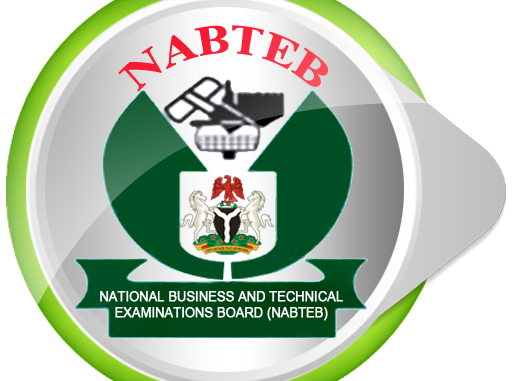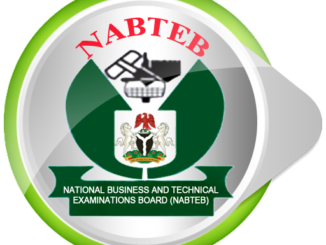
OFFICE PRACTICE-OBJ;-ExamgrandComNg
1-10 BCDDC BCBCB
11-20 DCADA DBDCD
21-30 ABBCA ADCBC
31-40 ACCAD DACBB
41-50 BBCBD DBDBB
COMPLETED
••••••••••••••••••••••••••••••••••••••••••••••••••••••••••••••••••
OFFICE PRACTICE ESSAY- ANSWERS;-ExamgrandComNg
INSTRUCTION: ANSWER FIVE QUESTIONS ONLY
(1i)
Indexing is the process of organizing and structuring data in a way that allows for efficient and quick retrieval of information. It involves creating a data structure called an index that contains references to the locations of data within a larger dataset.
(1ii)
– B-Tree Indexing
– Hash Indexing
– Bitmap indexing
– Inverted Indexing
(1iii)
(i) B-Tree Indexing: B-Tree (balanced tree) indexing is a widely used indexing method in database systems. It organizes data in a tree-like structure, where each node contains multiple keys and pointers to child nodes. B-trees are designed to provide efficient searching, insertion, and deletion operations, making them suitable for large datasets.
(ii) Hash Indexing: Hash indexing involves mapping data values to a fixed-size array called a hash table. A hash function is used to convert the data into a unique hash code, which is then used as an index to store and retrieve the corresponding data. Hash indexing allows for constant-time retrieval but may suffer from collisions (different data values mapping to the same index).
(iii) Bitmap Indexing: Bitmap indexing is a technique used for indexing categorical data with a limited number of distinct values. It represents each distinct value as a bit vector or bitmap, where each bit corresponds to a record in the dataset. Bitmap indexes are efficient for filtering and combining multiple conditions in queries, especially when applied to columns with low cardinality.
(iv) Inverted Indexing: Inverted indexing is commonly used in text search engines to quickly locate documents containing specific words or terms. It consists of a list of unique terms (or words) in the dataset, along with pointers to the documents or records that contain each term. Inverted indexes facilitate efficient full-text searches by enabling quick lookup of documents based on the terms they contain.
••••••••••••••••••••••••••••••••••••••••••••••••••••••••••••••••••
(2i)
(i) Offices create a professional work environment that helps foster productivity, professionalism, and focus.
(ii) Offices provide a space for administrative tasks such as record-keeping, document management, scheduling, and resource allocation.
(iii) serve as a central hub for communication and coordination among employees, departments, and teams.
(2ii)
=ADVANTAGES=
(i) Offices provide a physical or virtual space where employees can interact, collaborate, and communicate effectively.
(ii) It provides a setting where meetings can take place, presentations can be delivered, and clients can be received, enhancing the overall perception of the business.
(iii) Offices often have access to centralized resources, such as office supplies, technology, and equipment, which can be shared among employees.
=DISADVANTAGES=
(i) Offices often have fixed working hours and a structured environment, which may limit flexibility for employees.
(ii) Offices are typically located in specific areas, which may require employees to commute to work.
(iii) Establishing and maintaining an office can be expensive, involving costs such as rent, utilities, furniture, technology, and maintenance.
••••••••••••••••••••••••••••••••••••••••••••••••••••••••••••••••••
(4a)
(i) Functionality and Features
(ii) Quality and Reliability
(iii) Cost and Budget
(iv) Compatibility and Integration
(iv) Support and Maintenance
(4b)
(i) Functionality and Features: Before purchasing an office machine, it is crucial to evaluate its functionality and features. Consider the specific tasks and requirements the machine needs to fulfill in your office.
(ii) Quality and Reliability: Look for machines from reputable brands known for producing reliable and durable equipment. Read customer reviews and ratings to get an idea of the machine’s performance and durability. Investing in a high-quality and reliable machine can save you from frequent breakdowns and repair costs in the future.
(iii) Cost and Budget: Compare prices from different vendors and consider any ongoing expenses, such as ink or toner cartridges for printers, when evaluating the overall cost of ownership.
(iv) Compatibility and Integration: Assess the compatibility of the office machine with your existing technology infrastructure. Ensure that the machine can seamlessly integrate with your office’s network, software systems, and other devices. Check if the machine supports standard protocols and interfaces that align with your office’s requirements.
(v) Support and Maintenance: Consider the availability of technical support, warranty terms, and maintenance services for the office machine. Check if the manufacturer or vendor offers adequate customer support channels, such as phone, email, or live chat.
••••••••••••••••••••••••••••••••••••••••••••••••••••••••••••••••••
(5)
(i)Office Management: One of the primary functions of the administrative department is office management. This includes overseeing day-to-day operations, maintaining office supplies and equipment, organizing meetings and appointments, managing correspondence, and coordinating administrative activities. The administrative department ensures that the office environment is conducive to productivity and efficiency.
(ii)Human Resources Management: The administrative department often handles various human resources functions within the organization. This includes managing employee records, handling payroll and benefits administration, coordinating recruitment and onboarding processes, organizing training and development programs, and ensuring compliance with labor laws and regulations. The department acts as a liaison between employees and management, addressing employee queries and concerns.
(iii) Records and Information Management: Another important function of the administrative department is managing records and information. This involves developing and implementing systems for document storage, retrieval, and archiving. The department ensures that important records, such as contracts, financial documents, and personnel files, are organized, protected, and easily accessible. They may also handle data privacy and information security protocols.
(iv) Communication and Correspondence: The administrative department serves as a central point of communication within the organization. It handles both internal and external correspondence, including drafting and distributing memos, emails, and other communication materials. The department may also manage the organization’s website, social media presence, and public relations activities. Effective communication is essential for maintaining a cohesive work environment and fostering positive relationships with stakeholders.
(v) Budgeting and Financial Administration: The administrative department often plays a role in budgeting and financial administration. This includes preparing and monitoring budgets, processing invoices and expenses, reconciling financial records, and assisting with financial reporting. The department may work closely with the finance team to ensure accurate financial management and help make informed decisions regarding resource allocation.
••••••••••••••••••••••••••••••••••••••••••••••••••••••••••••••••••
(6)
(i) Mail Delivery: NIPOST is primarily responsible for the collection, processing, sorting, and delivery of mail items throughout Nigeria. They handle both domestic and international mail, ensuring that letters, parcels, and packages reach their intended recipients in a timely and secure manner.
(ii) Postal Banking: NIPOST operates a postal banking system known as the Nigeria Postal Service Savings Bank (NIPOST Savings Bank). This service allows individuals, particularly those in remote or underserved areas, to access basic banking services such as savings accounts, money transfers, and bill payments through post office branches.
(iii) Money Order Services: NIPOST offers money order services that allow individuals to send and receive money within Nigeria or internationally. Money orders provide a secure and reliable means of transferring funds, especially for those who do not have access to traditional banking services.
(iv) Philatelic Services: NIPOST promotes philately, the collection and study of postage stamps, by offering a range of philatelic services. These services include the sale of commemorative stamps, stamp albums, and other collectibles, as well as the organization of stamp exhibitions and events to encourage public interest in philately.
(v) Agency Services: NIPOST serves as an agent for various government agencies and institutions, providing services such as the collection of taxes, utility bill payments, and the distribution of government documents. This helps to extend the reach of these agencies to remote areas where access to government services may be limited.
••••••••••••••••••••••••••••••••••••••••••••••••••••••••••••••••••
(7a)
A receptionist is an individual who works in a professional setting, usually at the front desk or reception area of an organization, such as a hotel, office, or medical facility.
(7b)
(i) A receptionist should maintain a professional demeanor and appearance at all times.
(ii) They should be adaptable to changes in schedules, priorities, or unforeseen circumstances that may arise.
(iii) They should be friendly, approachable, and capable of building rapport with a diverse range of individuals.
(iv) A receptionist should be dependable to be trusted by the management of the organisation
••••••••••••••••••••••••••••••••••••••••••••••••••••••••••••••••••
COMPLETED



Be the first to comment